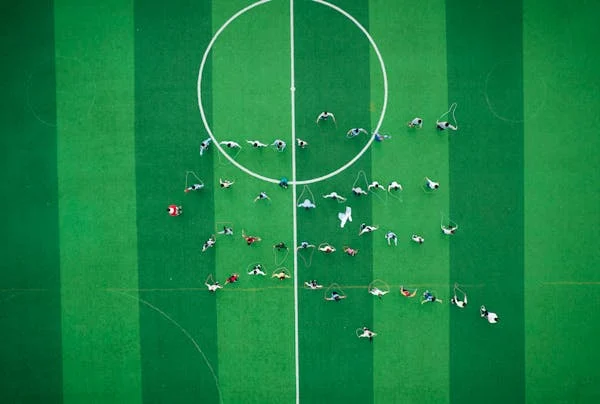Athlete activism has emerged as a powerful force for social change, transcending the boundaries of sports to influence societal perspectives and policies. This article examines the profound impact of athlete activism on both the sports industry and broader society, highlighting key examples, challenges, and implications.

1. Defining Athlete Activism
Athlete activism refers to athletes using their platform and influence to advocate for social justice, raise awareness about important issues, and promote positive change. Historically, athletes have spoken out against racial injustice, gender inequality, discrimination, political policies, and other societal issues through various forms of protest, advocacy, and philanthropy.
2. Historical Context and Milestones
Athlete activism dates back decades and has evolved significantly over time:
- Civil Rights Era: Athletes like Muhammad Ali and Jackie Robinson advocated for racial equality and civil rights.
- Olympic Protests: Tommie Smith and John Carlos’ raised fists at the 1968 Olympics highlighted racial discrimination.
- Title IX Advocacy: Billie Jean King and other female athletes campaigned for gender equity in sports.
These milestones paved the way for modern-day athlete activism, shaping public discourse and inspiring future generations of athletes to use their platforms for social change.
3. Platform and Influence
Athletes possess significant influence due to their visibility, fan base, and media coverage:
- Social Media: Platforms like Twitter, Instagram, and TikTok amplify athletes’ messages and reach diverse audiences globally.
- Endorsements and Sponsorships: Athletes partnering with brands leverage their influence to advocate for causes aligned with their values.
- Press Conferences and Interviews: Public statements and interviews raise awareness and spark conversations on critical issues.
Athletes leverage their platform to support marginalized communities, advocate for policy reforms, and promote inclusivity and diversity in sports and society.

4. Impact on Sports Industry
Athlete activism has reshaped the sports industry by:
- Policy Reforms: Influencing league policies on diversity, inclusion, and social justice initiatives.
- Sponsorship and Brand Alignment: Brands aligning with athletes’ activism support causes, enhance corporate social responsibility, and attract socially conscious consumers.
- Fan Engagement: Engaging fans in discussions on social issues, fostering a sense of community, and promoting tolerance and understanding.
Athlete activism encourages sports organizations to prioritize social responsibility, address systemic inequalities, and promote inclusive environments.
5. Challenges and Controversies
Athlete activism faces challenges and controversies:
- Backlash and Criticism: Facing criticism from fans, sponsors, and media for controversial statements or actions.
- League Regulations: Balancing athletes’ right to free speech with league policies and contractual obligations.
- Personal and Professional Risks: Enduring personal attacks, threats, or career consequences for speaking out on controversial issues.
Navigating these challenges requires athletes to weigh risks, collaborate with stakeholders, and advocate for change while maintaining their professional integrity.
6. Global Influence and Inspiration
Athlete activism transcends borders, inspiring global movements:
- International Solidarity: Athletes supporting global causes, human rights campaigns, and international solidarity movements.
- Impact Beyond Sports: Influencing policies, societal norms, and cultural perceptions globally.
- Youth Empowerment: Inspiring future generations to become advocates for social justice and change.
Athlete activism fosters collaboration across borders, promotes global awareness, and empowers individuals to take action for a more just and equitable world.
7. Intersectionality and Diversity
Athlete activism promotes intersectional approaches to addressing systemic inequalities:
- Gender Equality: Advocating for equal pay, opportunities, and representation in sports and society.
- LGBTQ+ Rights: Supporting inclusivity and acceptance, challenging discrimination based on sexual orientation and gender identity.
- Racial Justice: Addressing systemic racism, police brutality, and racial disparities in sports and communities.
By addressing intersectional issues, athletes amplify marginalized voices, challenge stereotypes, and advance social justice agendas.
8. Educational Initiatives and Community Engagement
Athlete activism extends to educational initiatives and community engagement:
- Youth Programs: Supporting educational initiatives, mentorship programs, and youth sports leagues.
- Community Outreach: Partnering with nonprofits, schools, and grassroots organizations to address local challenges and promote social change.
- Policy Advocacy: Lobbying for legislative reforms, voting rights, and policy initiatives to create systemic change.
Athlete-led initiatives empower communities, promote civic engagement, and foster sustainable development through sports and education.

9. Media Coverage and Public Perception
Media coverage shapes public perception of athlete activism:
- Positive Narratives: Highlighting athletes’ contributions to social causes, inspiring positive change, and fostering empathy.
- Negative Framing: Criticizing athletes’ actions, focusing on controversies, and perpetuating divisive narratives.
- Dialogue and Discourse: Sparking national debates, discussions on social issues, and collective action.
Media plays a pivotal role in shaping narratives, influencing public opinion, and amplifying athletes’ voices in the discourse on social justice.
10. Future Directions and Legacy
The future of athlete activism is characterized by:
- Continued Advocacy: Sustaining momentum, expanding initiatives, and addressing emerging social challenges.
- Collaborative Leadership: Collaborating with stakeholders, communities, and policymakers to effect systemic change.
- Legacy and Inspiration: Inspiring future generations of athletes to champion social justice, equity, and human rights.
Athlete activism leaves a lasting legacy, driving progress toward a more inclusive, equitable, and socially responsible future in sports and society.
Conclusion
In conclusion, athlete activism represents a powerful catalyst for social change, transcending sports to influence societal norms, policies, and cultural perceptions globally. By leveraging their platform, influence, and visibility, athletes advocate for social justice, amplify marginalized voices, and inspire collective action. As athletes continue to champion diversity, inclusion, and human rights, their activism shapes a more equitable and compassionate world, paving the way for a future where sports serve as a catalyst for positive social transformation.

